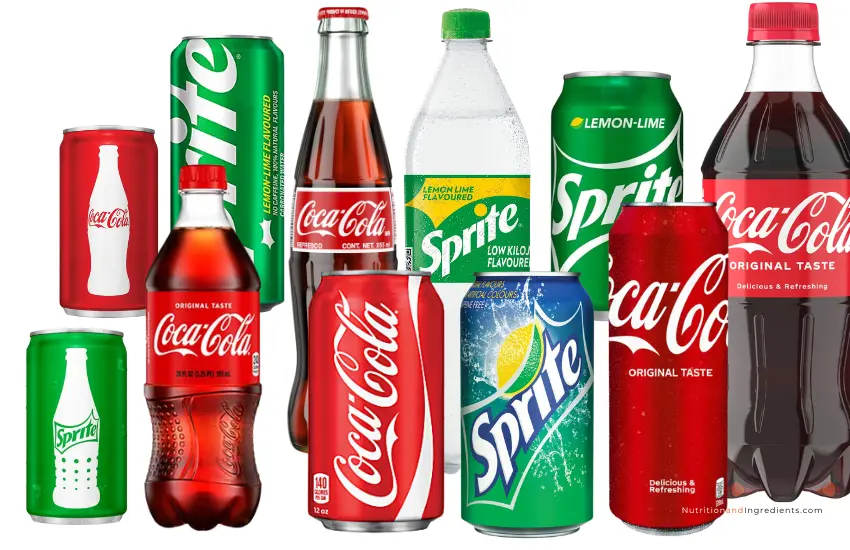Coca-Cola Original Taste
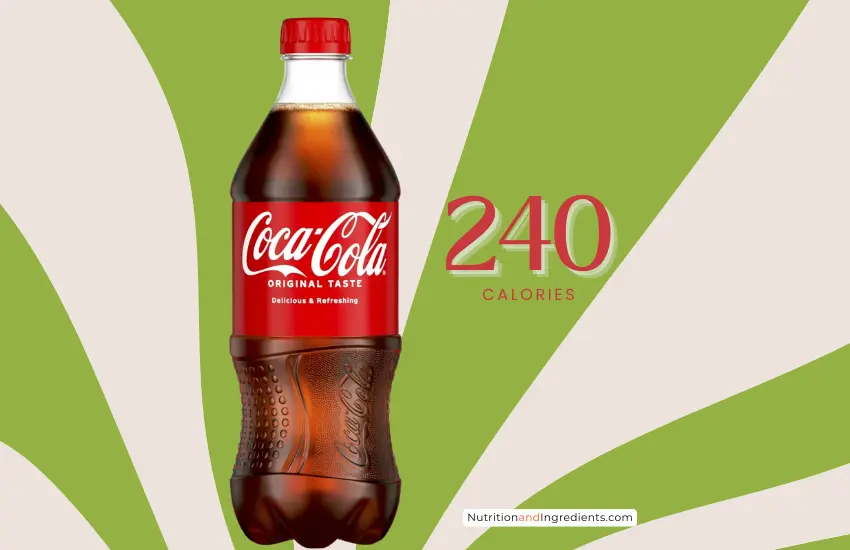
As a global brand, Coca-Cola needs little introduction. Original Coke, packaged in an iconic bottle, is available in more than 200 countries and territories around the world.
Since it’s founding in 1886, The Coca-Cola Company has introduced a variety of flavors, including Spiced, Cherry, Vanilla, Georgia Peach, California Raspberry, and many others.
Its Original Taste flavor is available in various size bottles, from a small 7.5 fl oz container to the largest 2 liter size.
A standard 20-ounce bottle has 240 calories and 57 milligrams of caffeine. Read this post for a complete overview of the calories, nutrition facts, and ingredients in original taste Coca-Cola®.
Coca-Cola Nutrition Facts
Nutrition facts are based on a single serving size of 20 fluid ounces.
Calories
Each serving has 240 calories. Coke has zero fat and zero protein. Therefore, 100% of the 240 calories is derived from carbohydrates.
Note that the carbohydrates are entirely comprised of sugars. Moreover, all of the calories are generated from Added Sugars.
100% of calories are derived from sugar
Total Sugars
As mentioned above, one serving of the soda contains 65 grams of total carbohydrates, all of which are added sugars.
High Amount of Added Sugars
Dietary Guidelines for Americans suggest limiting calories from added sugars to less than 10% of total calories. This one drink delivers 240 calories from added sugars. That is high.
According to the FDA, a 20% daily value or higher for a nutrient is considered high. In the case of this popular drink, the amount of added sugars is 130% of the daily value (based on a 2,000 calorie diet).
Although the list of ingredients includes high fructose corn syrup, I measured 65 grams of sugar. It measures out to approximately 1/3 cup.
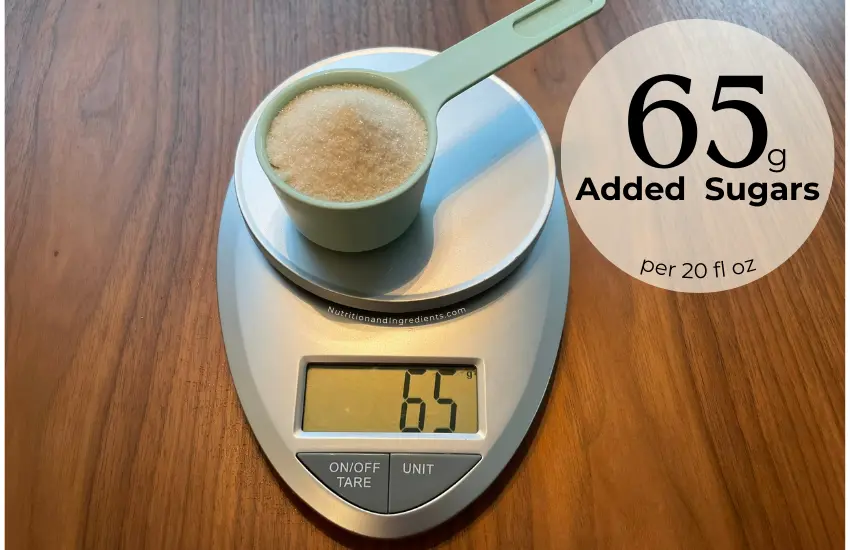
Individual calorie needs vary. Consult your physician for dietary advice. Nutritional information in this guide is based on a 2,000 calorie daily diet, the standard measure used by the FDA for general nutrition guidance.
How to Calculate Daily Value
Here is how the daily value is calculated:
Sodium
In addition to the sugar in this sweet drink, there are 75 milligrams of sodium per serving.
Caffeine
Caffeine is one of the ingredients in a coca-cola. According to the U.S. Department of Agriculture FoodData Central database, there are 34 milligrams of caffeine per 12 fluid ounces of coca-cola.
Based on that data, a 20 ounce serving of Coke has 57 milligrams of caffeine.
By comparison, an 8.4 fl. oz. can of Red Bull contains 80 milligrams of caffeine and an average brewed coffee (8 fl oz) contains 95 milligrams.
Here is a short list of the approximate amount of caffeine in Coca-Cola, based on various size servings:
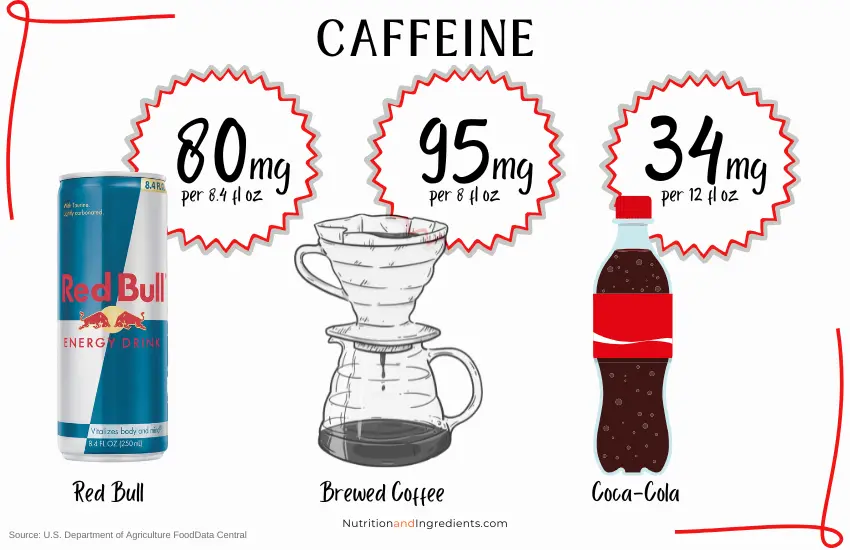
Nutrition Facts
Amount per 20 fluid ounces
Red indicates %DV is high.
|
Calories |
240 |
|
%DV | ||
|
Total Fat |
0g |
0% |
|
Saturated Fat |
0g |
0% |
|
Trans Fat |
0g | |
|
Cholesterol |
0mg |
0% |
|
Sodium |
75mg |
3% |
|
Carbohydrates |
65g |
24% |
|
Dietary Fiber |
0g |
0% |
|
Total Sugars |
65g | |
|
Added Sugars |
65g |
130% |
|
Protein |
0g |
%DV based on a 2,000 calorie diet. Calorie needs vary and your %DV may be higher or lower. Provided for informational purposes only. Consult with your physician for dietary or healthcare advice.
Compare nutritional value in a Red Bull Energy Drink and review the comparison report for Coke vs Sprite. Learn more about what’s in packaged foods and drinks to make an informed decision about your diet.
Original Coca-Cola does not provide a significant source of saturated fat, trans fat, cholesterol, dietary fiber, vitamin D, calcium, iron, or potassium.
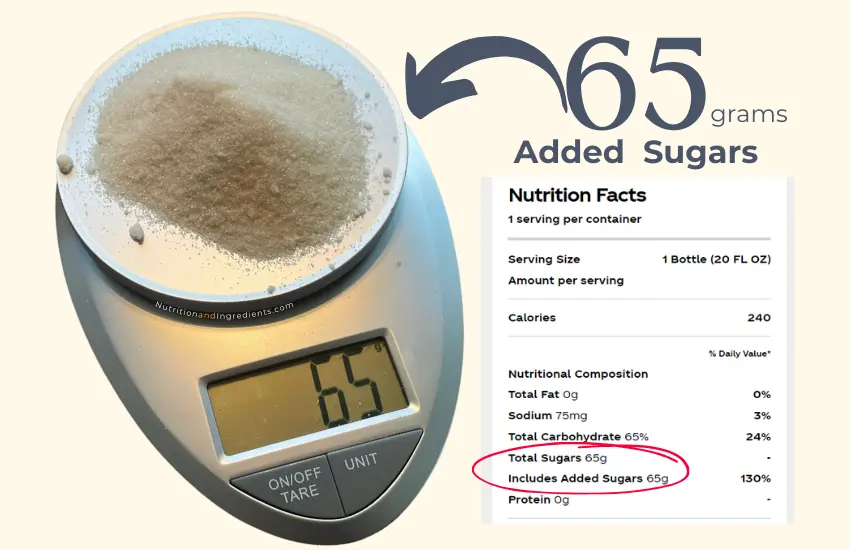
Coca-Cola Ingredients and Allergens
Here is the list of ingredients in Coca-Cola.
Ingredients |
|---|
|
Carbonated Water, High Fructose Corn Syrup, Caramel Color, Phosphoric Acid, Natural Flavors, Caffeine |
Allergens
According to the FDA, the most common food allergens are milk, peanuts, eggs, fish, crustacean shellfish, soy, tree nuts, wheat and sesame.
Original Taste Coca-Cola is not made with any of the items that are considered common allergens.
Nutrition facts, prices, and ingredients are based on available information as of the date of publication. Restaurants and food manufacturers may change recipes or formulations without notice. Check package labels and ask the product manufacturer or restaurant for the most up-to-date information. Unless otherwise stated, %DV is based on a 2,000 calorie diet. All reports and reviews published on this site are for informational purposes only. NutritionandIngredients.com does not provide healthcare advice or dietary recommendations. Always consult your licensed physician for any healthcare or dietary advice.
Nutrition facts and ingredients source: The Coca-Cola Company

